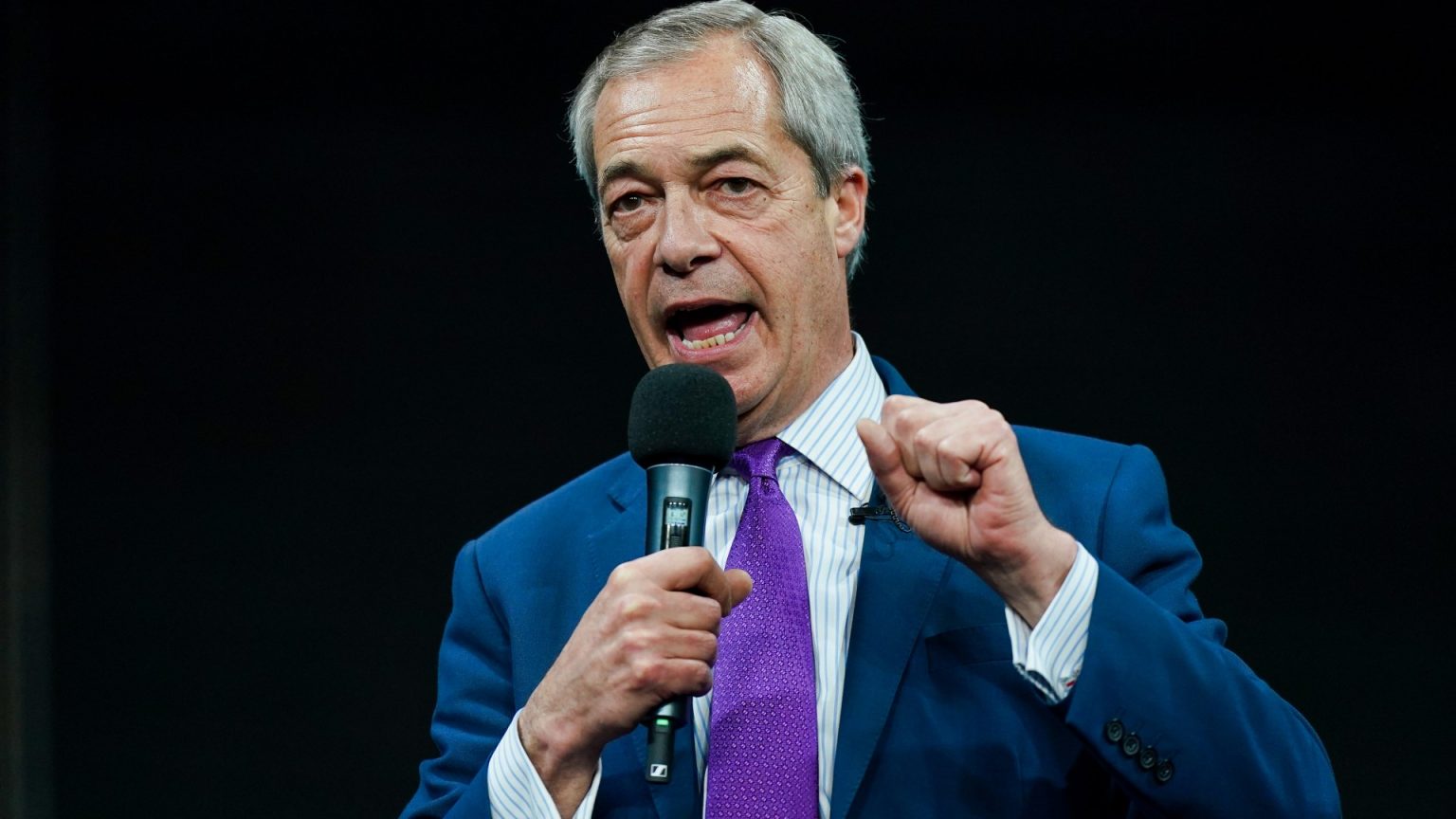Nigel Farage’s Reform UK party has experienced a surge in popularity, topping a recent YouGov poll for the first time, surpassing both Labour and the Conservatives. This unexpected development has led to speculation about Farage’s potential return as Prime Minister, with bookmakers offering odds of 2/1 on his success. While a general election is still four years away, the rapid shift in public opinion highlights the growing disillusionment with the current political landscape. Farage, despite acknowledging the challenges, recognizes the momentum Reform UK has gained, attributing it to their “positive attitude” towards addressing the nation’s problems. However, transforming this positive momentum into tangible political power remains a significant hurdle.
The author expresses skepticism about the accuracy of opinion polls, citing a personal survey with dubious results. Nevertheless, the current surge in support for Reform UK appears to resonate with a broader sentiment of discontent across the country. The author argues that this disaffection stems from the perceived failures of both Labour leader Keir Starmer and Conservative leader Kemi Badenoch to effectively address the nation’s concerns. This has created an opening for Farage and Reform UK to capitalize on public frustration. Farage’s challenge lies in translating popular support into a viable political force capable of governing.
The primary obstacle for Reform UK is the lack of experienced and credible candidates to fill parliamentary seats. Despite the buzz generated in the last election, Reform UK secured only five MPs, falling far short of the predicted 13 seats. To achieve a majority government, Farage needs to recruit a substantial number of competent candidates by 2029. While the party is attracting new members and some Tory defectors, its short history is marred by controversies surrounding the views and behavior of some of its members. This raises concerns about the party’s ability to present a credible and electable slate of candidates.
The author points to past instances where Reform UK candidates have expressed racist, misogynistic, and bigoted views. Even a former prospective MP, Georgie David, upon defecting to the Tories, described the “vast majority” of Reform UK candidates as holding such views. These incidents, regardless of Farage’s efforts to distance himself from extremist elements, continue to taint the party’s image and raise questions about its ability to attract mainstream support. The recent resignation of Michelle Ballantyne, Reform UK’s former leader in Scotland, over links to a Facebook page featuring racist and far-right content further underscores this challenge. Addressing these issues is crucial for Reform UK to be seen as a viable governing party.
Beyond the issue of candidate quality, Reform UK faces the challenge of demonstrating its capacity to govern effectively. While Farage’s charisma and populist messaging resonate with a segment of the population, the party lacks a detailed and coherent policy platform. The author emphasizes the need for Reform UK to move beyond rhetoric and present concrete solutions to the complex problems facing the nation. The appointment of Zia Yusuf, a former finance professional, as the new chairman and major donor, is seen as a positive step towards professionalizing the party. However, demonstrating competence and trustworthiness remains a significant hurdle for Reform UK.
The author concludes by highlighting the contrast between Farage’s focus on domestic politics and the broader global context. The anecdote about US Vice President JD Vance’s online spat with former Tory MP Rory Stewart serves as a distraction from the main narrative. Similarly, the discussion about China’s development of AI chatbots and other seemingly unrelated topics further dilute the central theme of Reform UK’s rise and the challenges it faces. The inclusion of these tangential anecdotes, while potentially entertaining, detracts from the in-depth analysis of Reform UK’s prospects and the implications for British politics. A more focused examination of the party’s ideology, policy positions, and potential impact on the political landscape would provide a more comprehensive understanding of its potential to reshape the future of British governance.











